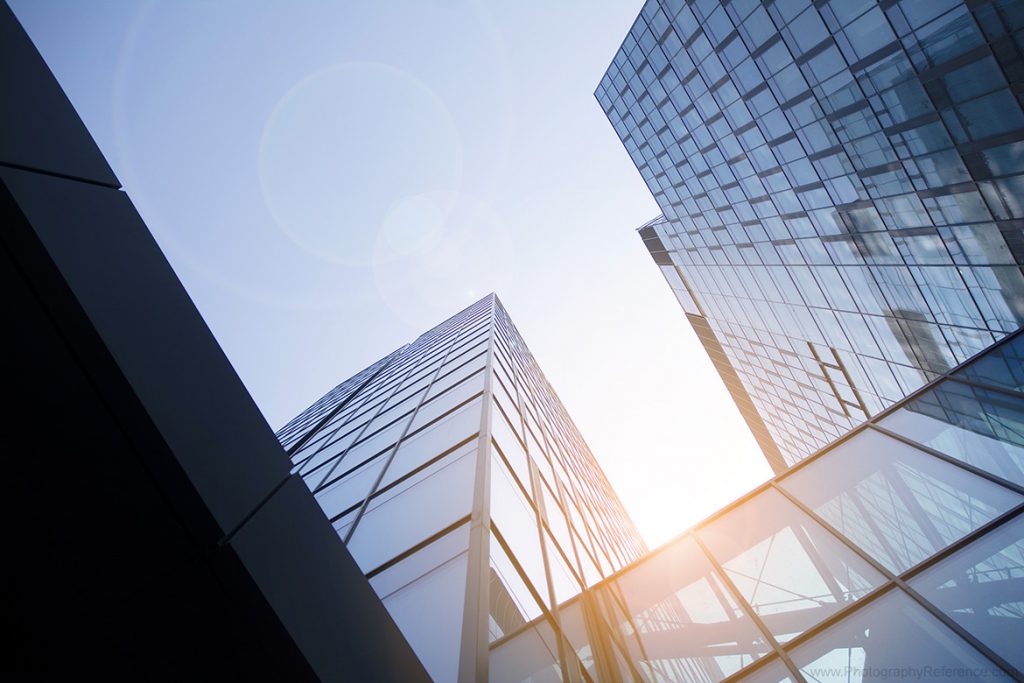Architectural photography is a commercial genre of photography concerned with documenting the exterior and interior design aspects of a building or structure. Architects, builders, and advertising firms are typical clients of a commercial photographer that specialises in architectural photography.
An architectural photographer may also photograph any other architectural structure such as industrial premises, bridges, stadiums, and real estate properties.
Real estate photography however is a full sub-genre of photography that requires a skillset in the photographer to be able to capture the interior and exterior design of private homes in a rapid shoot and delivery time and usually at a much lower cost-base when compared to architectural photography.
For example, a four-bedroom family home in the outer suburbs of a city may be photographed within a one-hour period, with up to 30 or more photos delivered the same day or next day. High-end properties may be photographed by either a real estate photographer or architectural photographer.
We earn commissions if you shop through the links below. Additionally, as an Amazon Associate I earn from qualifying purchases. Please read the full Affiliate Disclosure.
Architectural photography assignments
There are photographers and businesses that specialise in fast-turnaround real estate photography. This compares markedly in both time and price for photography of commercial structures for a builder or architect by an architectural photographer. An architectural photography assignment may be booked for anywhere from a few hours to a full day or more.
This allows the photographer to set up and compose each photo with more thought and purpose. Architectural photography is not about speed, it is about composure.
Rules of architectural photography
One of the important rules of photography that any architectural photographer will usually follow is to ensure vertical lines stay vertical. This is where the camera is set perfectly horizontal to ensure vertical lines do not converge.
Tilt-shift lenses can be used for this purpose as the lens can be angled differently to the camera’s sensor, allowing the camera to be set at a higher or lower elevation without affecting the vertical lines. Remember though that rules in photography are not set-in stone, so can be broken sparingly at times, including verticals!
A personal endeavour
Architectural photography can be a personal endeavour. It can also be a personal artistic endeavour where you go to an area within your town or city that has interesting architecture. To get started you should look to photograph buildings with interesting forms and unusual architectural aspects.
By starting this way, you’ll train your eye to look for interesting aspects of buildings as you make your way through your town or city.
Capture the details in architectural photography
Although in the beginning you will be tempted to only shoot photos of buildings in their entirety, you’ll soon find those compositions to be relatively bland and likely uninteresting. Put on a zoom lens or move in much closer and you will soon realise this is where the especially interesting part of architectural photography begins.
Close-ups of facades, staircases, landscaping, rooflines, windows, and décor against striking walls provide for the most appealing aspects of architectural photography. You want to showcase the craftsmanship of the design and the build at the same time.
Process architectural photographs in your time
As an architectural photographer you shouldn’t let your client push you to deliver photographs the same day or next day. It is vital for you to process your photographs carefully and that takes time. Unlike real estate photographs which usually have a shelf life of the length of the listing of the property for sale or lease, architectural photographs will likely be published online in the architect’s project gallery, in architectural print magazines and newspapers and for marketing of the architects’ and builders’ services for years to come.
As such, your price for architectural photography services should match the time and effort that you have put into the project.
Architectural photographs will likely be published online in the architect’s project gallery, in architectural print magazines marketing of the architects’ and builders’ services for years to come.Photography Reference
Equipment
When shooting aarchitecture for commercial gain you should use quality camera equipment. Such as DSLR’s or mirrorless cameras with interchangeable lenses, wide angle to zoom lenses and prime lenses and a good quality sturdy tripod. Flashes and lighting equipment may also be required.
You should also consider purchasing a tilt-shift lens; however, the cost may be prohibitive for you in the beginning.
Include motion
The inclusion of people in this type of photography is common. This is to show purpose and movement within the structure. A slow shutter speed whilst subjects are moving will create a slight blur on the subject; capturing purpose and movement within a still photograph.
The business of architectural photography
You will need to have good experience and know your equipment before taking on an assignment in this genre. Create a professional website portfolio of your work. This will be used as your CV by architects and builders. Also create an online portfolio on your social accounts such as TikTok, Facebook and Instagram.
Architects need professional photography for their portfolio!
Architectural photography captures the space and form of a design.

